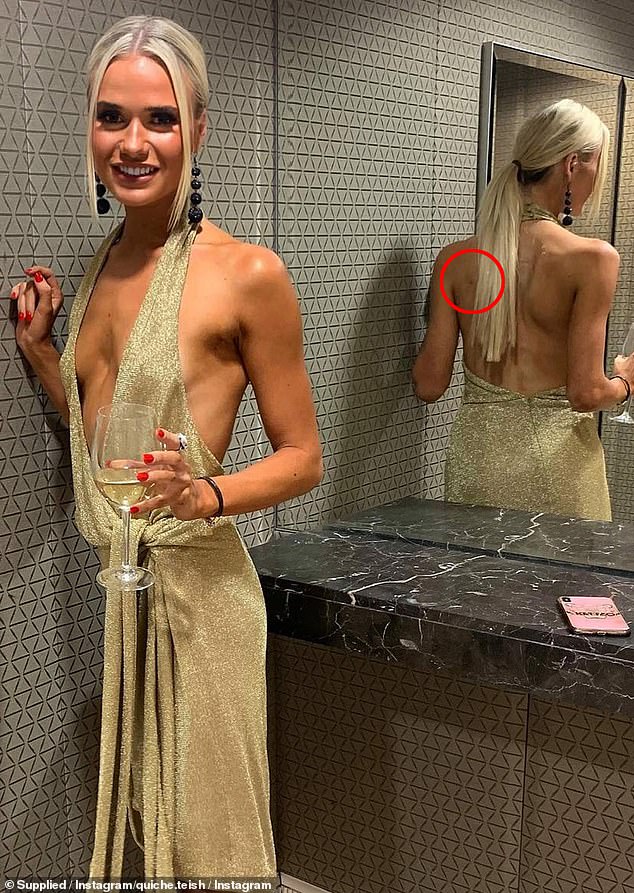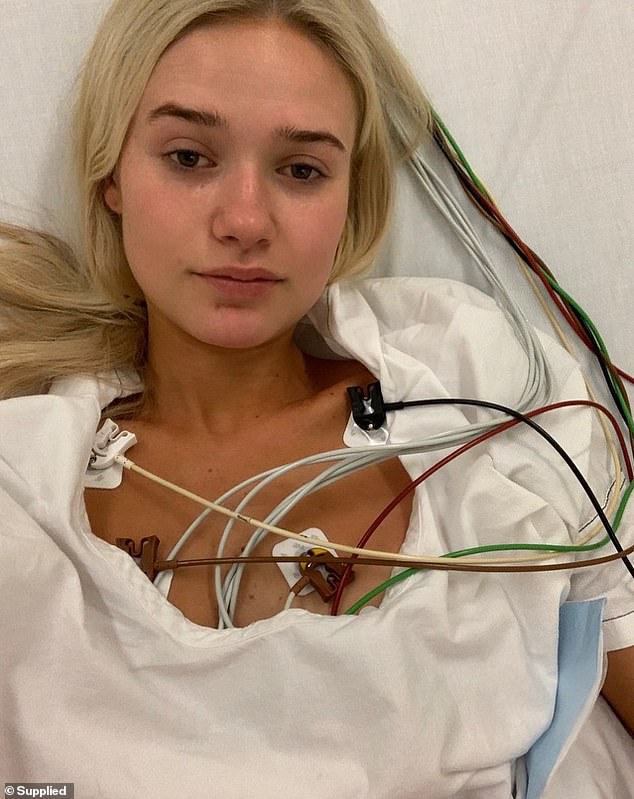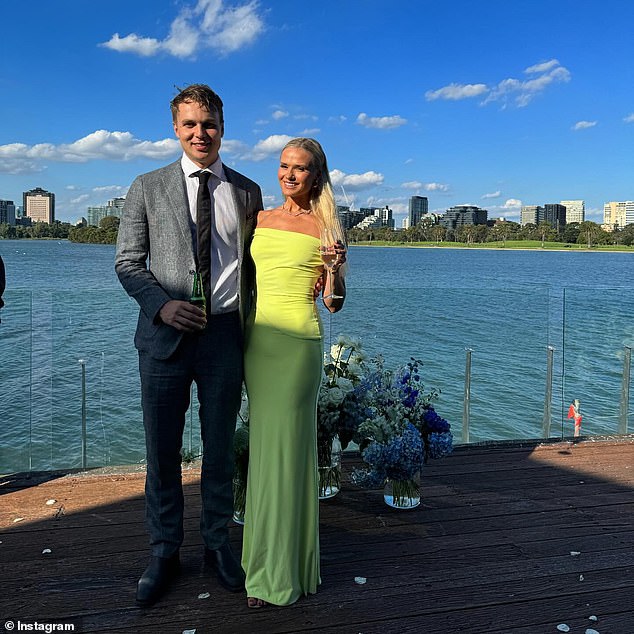I was living the dream at 20 when my sister noticed a tiny freckle on my shoulder blade – then I was given some shattering news
A sun-loving young woman diagnosed with skin cancer at the age of 20 admits she was ‘naive’ about how deadly Australia’s harsh sun can be.
Teisha Ward from Melbourne loved to enjoy the sun by sunbathing on the beach or by the pool, but was unaware that irreparable damage was being done.
Speaking to FEMAIL, the now 25-year-old executive assistant said she was far too ‘blasé’ after being diagnosed with stage three melanoma skin cancer and that doctors were confident they could simply ‘cut it out’.
‘My older sister Georgia noticed that I had a small, dark freckle on my back that was sticking out from the skin. It started to itch and bleed when I scratched it, and she encouraged me to get it checked out,” Teisha said.
The life-changing diagnosis came four years after Teisha broke her back in a horrific motorcycle accident that left her learning to walk again.
Teisha Ward, from Melbourne, was diagnosed with skin cancer at the age of 20
Recalling the day she saw her GP about the freckle, Teisha said: ‘I went to the doctor’s appointment feeling pretty blasé about the whole situation. As soon as they looked at it, they said, “Yes, we’re 99 percent sure it’s melanoma.”
“But even after I heard those words, I didn’t realize how serious it was.”
After the appointment, she got back into the car with her father and sister and told them the news.
Her father immediately became very concerned and stopped the car, turned around and went back to the clinic with Teisha to find out more.
He asked the doctors for more details and was told that the freckle had to be removed immediately.
The sinister spot was excised two days later and a biopsy of the cells was performed. Teisha was then referred to an oncologist at the Royal Prince Alfred Hospital. Then it hit her.

The freckle can be seen on her shoulder blade. It was small, yet it had risen above the skin and bled when she scratched it

Her older sister Georgia (right) noticed a small freckle on her back that would rise, itch and bleed when she scratched it. Georgia urged Teisha to go to the doctor
“It’s been a long journey for my health, so Dad was worried about me. We actually lived at Royal Prize Alfred, so when we got back there, bad memories came flooding back,” she said.
The biopsy results showed that the cancer had already moved under the skin, so Teisha needed surgery to remove more of the surrounding area.
“When I was diagnosed it was shocking, but I felt more hurt for my parents – it was so hard to see what it was doing to them emotionally and mentally,” Teisha said.
“Considering I had the motorcycle accident four years earlier, I couldn’t believe we would have to spend more time in the hospital because of cancer.”
Doctors also had to perform a ‘lymph node test’, which involved injecting dye into Teisha’s body to detect any other cancer cells.
The cancer had spread to the lymph nodes under her arms and a total of 11 lymph nodes were removed.
“That was probably the toughest surgery I had because I couldn’t put my arms down and I couldn’t sit with my arms up for a week,” she explained.

The biopsy results showed that the cancer had already moved under the skin, so Teisha needed surgery to remove more of the surrounding area. The cancer had spread to the lymph nodes under her arms and 11 were removed from her armpits

During the treatment she lost some of her hair, felt extremely weak, had no appetite and her skin was super dry. She was working in real estate at the time but could not continue and started dating her boyfriend, AFL player Dylan Clarke
Shortly after the operation, Teisha started oral chemotherapy and the doctors were confident that this would work in the fight against the cancer.
During the treatment she lost some of her hair, felt extremely weak, had no appetite and her skin was super dry. She was working in real estate at the time, but could not continue and started dating her boyfriend Dylan Clarke.
Her chemotherapy lasted 18 months and was successful. Now Teisha is regularly checked to make sure the cancer has not returned.
The hardest part of the whole ordeal wasn’t the cancer itself, but looking to loved ones for support.
“My partner Dylan has been my rock the whole time and has helped me through everything,” she said.
“To this day, my family struggles with worries about the unknown and whether it will come back. For now we have to wait and see.’

The chemotherapy lasted 18 months and was successful. Now Teisha is regularly checked to make sure the cancer has not returned
“I feel like this has definitely shaped me into a better person who is stronger and more empathetic. It just shows that you have no idea what people are going through,” she said.
“If you looked at me when I was sick, you wouldn’t necessarily think I had cancer, but I did.”
Teisha said she has also gained a “really familiar perspective on life” and now wears sunscreen every day.
She also blamed the school system for a lack of education in Australia about sun protection and the consequences that can occur if it is not done.
The experience inspired Teisha and Georgia to launch self-tanning brand GT Skin in 2021 to encourage other Aussies to be aware of the deadly sun.
“Don’t tan in the sun, it’s not worth it,” Teisha warned.
‘When I was a kid, it was cool and attractive to be tanned. I think there is also a major lack of education about sun safety, which is why we started GT Skin.”
Currently, the brand offers face tanners, body tanners and hats, but it plans to expand into sunscreen products.
